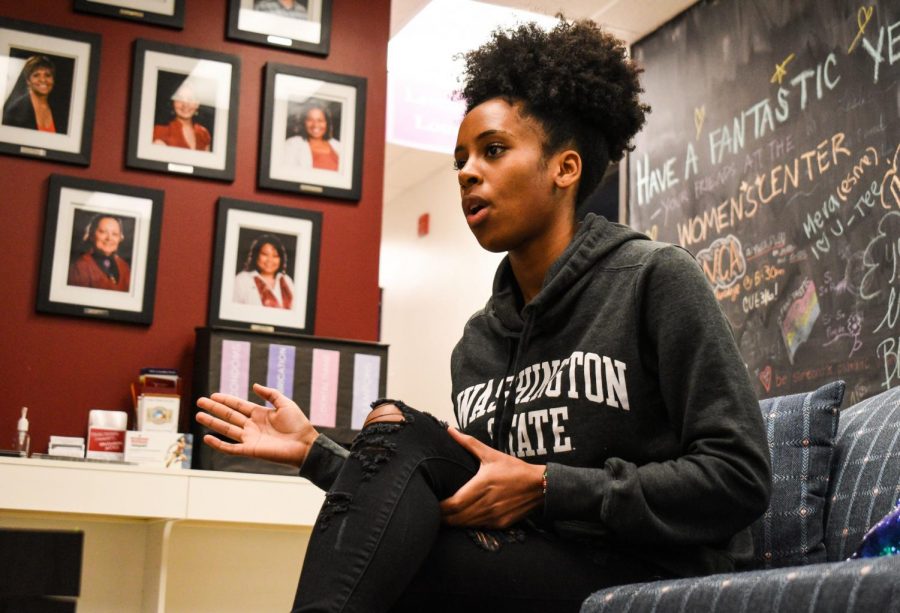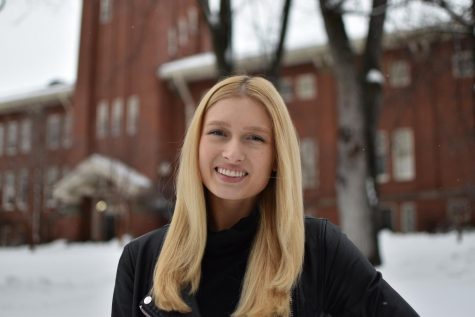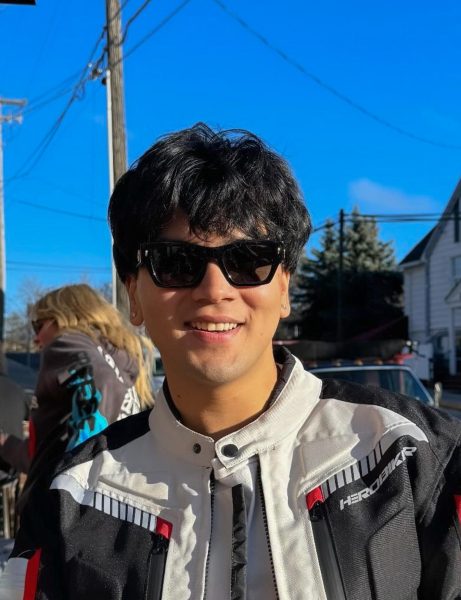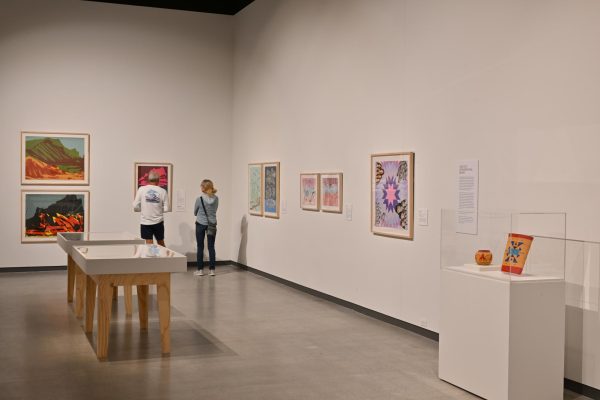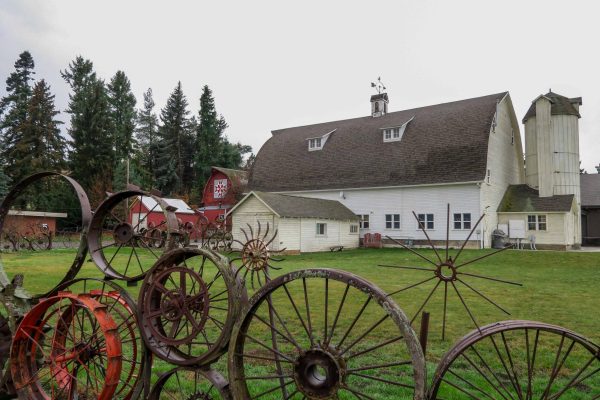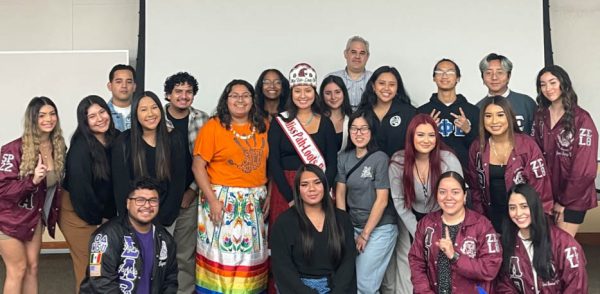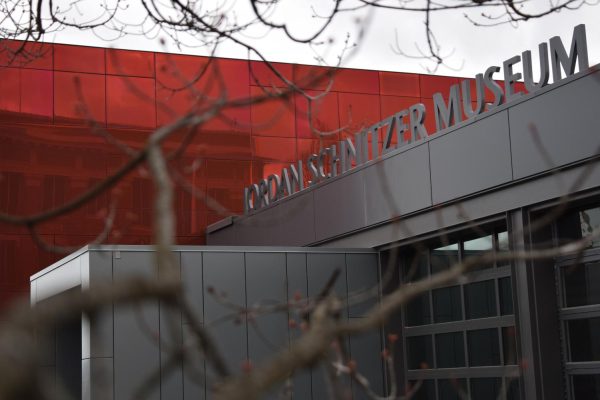Student leader made friends, built community in on-campus activism
Leader of Black Women’s Caucus says group has open borders, gives advice
AMAECHI MORDI | THE DAILY EVERGREEN
Jazmyne Jackson, current president of the Black Women’s Caucus, highlights her experiences with getting involved on campus on Oct. 28 at the Women’s Resource Center in Wilson-Short Hall.
November 13, 2019
Growing up as a military kid, Jazmyne Jackson had to adjust to making friends quickly.
“I probably went to about 12 different schools before I came to college, so I had to make new friends all the time,” junior microbiology major Jackson said. “Now when I meet people, it’s easier to connect.”
Jazmyne understands people to a level that’s impossibly accurate, senior computer science major Edna Mutonga said. She only needs to meet someone for a few minutes, and she’ll know them as much as they know themselves.
It’s her care for and understanding of other people that inspired her to run for president of the Black Women’s Caucus, Jackson said. The BWC is a registered student organization that focuses on issues black women face globally, nationally and locally.
Some of the topics BWC covers include hair care, self-care and general life advice. It is women giving other women advice, Sapphire Owens, BWC vice president and senior human development major, said. It’s not just focused on black women but on all women to foster a supportive environment.
“It’s a place where you don’t feel left out or like you don’t belong — because it’s easy to feel like you don’t belong,” Jackson said.
Jackson met some of her closest friends through BWC, including Mutonga and Owens. Through their involvement, they’ve grown into themselves.
“Black Women’s Caucus gave me confidence as a black woman,” Owens said. “I am who I am and no one else can tell me who I am. It gave me a voice, in a way.”
Another branch of the black student community is the African Diaspora Association, a group for those who culturally identify with a nation, or nations, within the African diaspora. Like BWC its borders are open, said Mutonga, who is vice president of the ADA.
“I would like if people took the time — you don’t even have to participate — but take the time to stop by and see what we’re talking about,” Mutonga said. “We want people to come by, to just ask questions.”
Jackson makes a point of attending as many ADA meetings as possible. She and Mutonga have been working to bring their groups closer together. A good place to start is to learn about one another, Mutonga said.
“Don’t be afraid to come to these different groups,” Owens said.
The two groups share common goals – to support their members and promote inclusivity. Jackson, Owens and Mutonga know the impact BWC and ADA can have, and they want to share it. We want to collaborate with the other groups – ADA, Native American Women’s Association, everyone, Owens said.
Jackson has ambitious plans for BWC’s future. She hopes to increase fundraising activities and campus presence over the course of the spring semester. The main goal is to reshape the image of BWC by next year, Jackson said.
“Even though we’re titled Black Women’s Caucus, we want everybody to come. Whether you want to learn about black women, or you want to give your input – anything,” Jackson said. “The name kind of makes it seem exclusive to black women. I really want to highlight that we’re inclusive.”
BWC meets at 6 p.m every other Wednesday in the CUE, Room 319.


